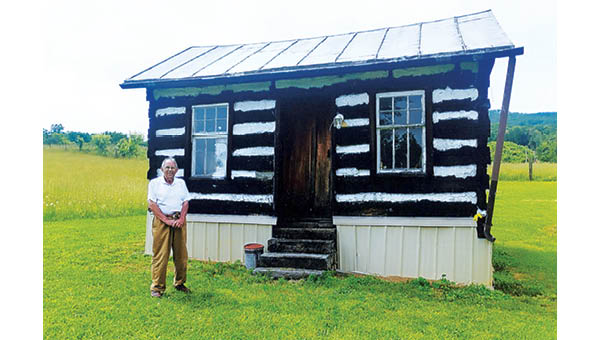City: Let’s wait and see
Published 8:45 am Thursday, June 12, 2014
With a lawsuit filed in Carter County Chancery Court, it’s now a waiting game for the city of Elizabethton on sharing liquor-by-the-drink revenues with the Carter County School System.
The school system filed the suit against the city seeking tax revenues from alcoholic beverage sales.
In its complaint for declaratory judgment, the school system alleges the city has failed to turn over the portion of collected liquor-by-the-drink tax revenues due by state law to the county system.
But City Mayor Curt Alexander presented a different take on the lawsuit.
Alexander said the city understood why county school officials filed a suit as they did. He said because they met the filing deadline set by the state, then the case could be heard in local court instead of Davidson County.
However, he said his interpretation of the state law was that the city did not owe the county schools any of the back liquor-by-the-drink revenues.
“Since the city operates their own K-12 school system, any of the liquor-by-the-drink revenues would be designated to that system,” Alexander said. “If we do owe the city schools, we can use the money we have already paid them to offset the difference. We will have to wait and see how that plays out.”
The section that Alexander referred to in the state statute said, “If any city exercises the privilege authorized under TCA … and operates a kindergarten through grade twelve (K-12) school system, then the city recorder shall retain the collections for the city school system.”
City of Elizabethton Finance Director Debbie Kessler said the situation was brought out following a new state legislation signed in May by Gov. Bill Haslam that outlined distribution of liquor-by-the-drink revenue for the 2014-2015 fiscal year, and detailed options for repayment for past years’ revenues owed.
City Manager Jerome Kitchens said that while liquor-by-the-drink has been an option in Tennessee since the early 1980s, the law regarding distribution had been interpreted differently. Kitchens said in all other cases state funds are pre-divided before reaching the city government.
“This was the only money not divided by jurisdiction before it got to us,” Kitchens said. “We thought it was being divided. Nobody realized that it had to be split.”
With the new law, and the requests from county school boards for repayment for past money owed, city governments are faced with the possibility of owing thousands, and in some cases millions to their local county education body.
Kessler estimates the city could owe the county school system around $130,000 for liquor-by-the-drink tax revenue since 1998 when it first became available in the city. If the suit determines the city needs to repay that money, Kitchens said it would be done in payments over five years.
But Kitchens said the city is waiting to see how the lawsuit develops before any money is transferred between the city and the schools.
He said a number of cities will likely take the case to the state Supreme Court. One of those could be Chattanooga, where the Hamilton County school system is seeking more than $11 million in liquor-by-the-drink tax revenues that had not been collected in past years.
“Cities are waiting for guidance,” Kitchens said. “We believe the best way to do that is wait and see how the lawsuits turn out. Chattanooga is likely going to take this all the way to the Supreme Court. Everyone agrees we can go from there.”
Kitchens said some cities have raised questions about whether the money was really due to their county school systems.
One argument raised across the state is that liquor-by-the-drink taxes are seen as an incentive for cities and education, and if counties do not have liquor by the drink, then should those counties have access to liquor-by-the-drink revenue? Another argument based from Chattanooga is that city governments have given money to county school systems for education purposes, so should more money be due?
Kitchens said cities that choose to pursue the suits further than the local level will receive state-level court rulings that would hold true for other cities as well.
“We feel we need to wait and see how this develops before we start to make any payments,” he said. “This is not anti-education. This is still taxpayers’ dollars that we are to be good stewards of.”
Kitchens said the suits are in process and a time line for results was not known.
“If it goes all the way to the state Supreme Court, it will likely be months, not weeks,” Kitchens said.
In its complaint, the county school system said “The Tennessee Department of Revenue collects a 15 percent state-imposed tax on the sale of alcoholic beverages consumed on premises.
“(State law) provides a statutory formula by which the Tennessee Department of Revenue distributes a portion of the liquor-by-the-drink tax revenues to local municipalities which have authorized liquor-by-the-drink sales within their corporation limits. Each such municipality is then required to remit a portion of their liquor-by-the-drink tax revenue to the County school fund of the county in which the municipality is located.”





